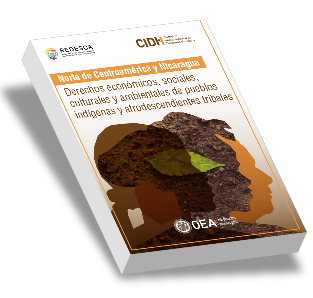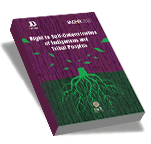- English
- Español
Rapporteurship on the Rights of Indigenous Peoples
For the inter-American system and those who work in it, the promotion and protection of the rights of indigenous peoples is a matter of special importance. In 1972, the Commission affirmed that for historical reasons, and based on moral and humanitarian principles, States had a sacred duty to provide special protection to indigenous peoples. In 1990, the Commission established the Office of the Rapporteur on the Rights of Indigenous Peoples in order to focus special attention on indigenous peoples in America, many of whom are exposed to human rights violations because of their special vulnerability, and to strengthen, give impetus to and organize the Commission’s activities in this regard.
Since the 1980s, the Commission has systematically spoken on the rights of indigenous peoples in special reports; and through the case system, in admissibility reports, country reports, reports on friendly settlements, the mechanism of precautionary measures, as well as through requests for orders and provisional measures filed with the Inter-American Court.
Throughout, the Commission has insisted on the need for special protection for the right of indigenous peoples to their lands and resources, because the full exercise of that right not only implies the protection of an economic unit, but also the protection of the human rights of a community whose economic, social and cultural development is based on its relationship to the land. In its 1993 Report on the Human Rights Situation in Guatemala, the Commission stated:
From the standpoint of human rights, a small corn field deserves the same respect as the private property of a person that a bank account or a modern factory receives.
The organs of the inter-American system for the promotion and protection of human rights have developed progressive laws that recognize the collective rights of indigenous peoples.
The importance that the Commission grants to the rights of indigenous peoples is shown in the strengthening of the Office of the Rapporteur on Indigenous Peoples, and significant progress has been achieved. As expressed by an indigenous leader: Access to the inter-American system of human rights is possible not only for lawyers, not only for doctors, but also for indigenous peoples.






